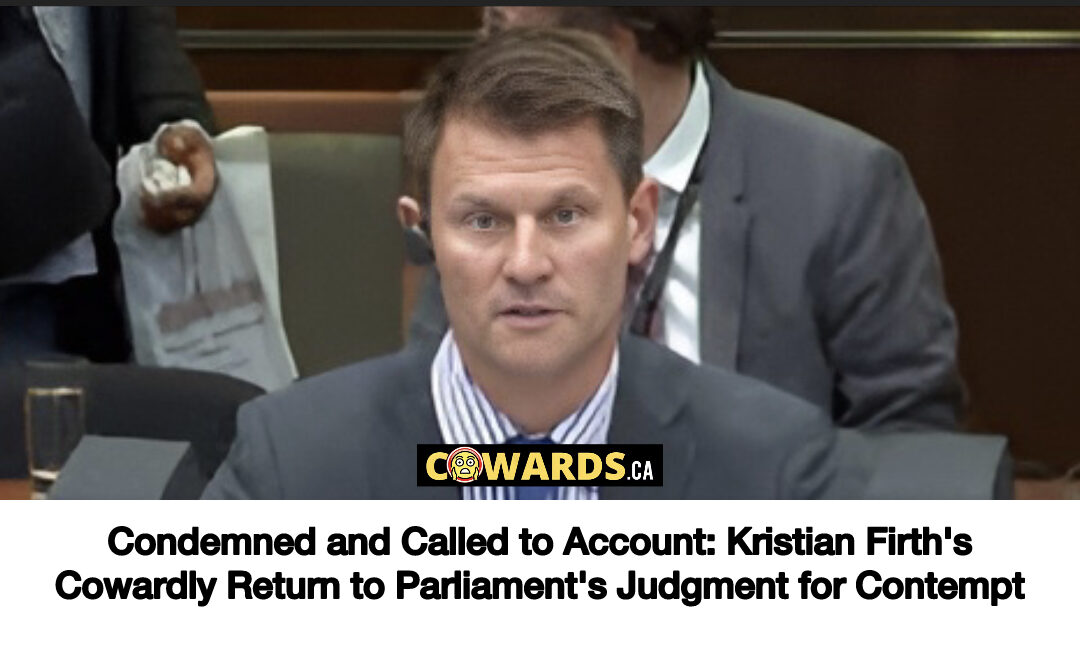Listen
GC Strategies partner Kristian Firth’s reprehensible display of cowardice has plunged him into the depths of parliamentary contempt, as MPs unanimously condemn his evasive tactics during a critical committee appearance. Firth’s cowardly demeanor was on full display as he shamelessly dodged inquiries regarding his collaboration with government officials in shaping the criteria for a lucrative $25 million contract tied to the controversial ArriveCan app. His refusal to provide transparent answers, instead opting to hide behind the thin veil of an ongoing RCMP investigation, epitomizes a complete disregard for parliamentary accountability and public trust.
The motion passed by Parliament not only brands Firth as a contemptible coward but also mandates his appearance “before the bar” of the House of Commons, where he will be subjected to a public reprimand by the Speaker. This rare and severe measure, invoked only on a handful of occasions throughout parliamentary history, serves as a stark testament to the egregious nature of Firth’s cowardly actions.
Firth’s association with GC Strategies, the principal contractor for ArriveCan, only further underscores his cowardice, as illuminated by the damning revelations unearthed by the Auditor General’s report. The report’s findings shed light on the government’s alarming over-reliance on external contractors like GC Strategies, which significantly contributed to the ballooning costs of the ArriveCan project, estimated at a staggering $60 million. Furthermore, the report exposed GC Strategies’ direct involvement in shaping the contract requirements, paving the way for the awarding of the lucrative $25 million deal—a process marred by accusations of biased and overly restrictive criteria, as corroborated by Canada’s procurement ombudsman.
Firth’s forthcoming appearance before the House serves as a somber reminder of the enduring principles of transparency and accountability within the realm of public service. His cowardly conduct echoes the ignominious deeds of past transgressors in parliamentary history, such as former MPs Ian Waddell and Keith Martin, whose actions warranted public rebuke for their defiance of parliamentary integrity. By joining the ranks of those brought before the bar, Firth solidifies his legacy as a cowardly figure, casting a dark shadow over the reputation of private citizens entrusted with the stewardship of public affairs.
As Firth braces himself for the impending public admonishment, the gravity of his cowardly actions reverberates throughout the hallowed halls of Parliament, serving as a cautionary tale for those who dare to flout the principles of accountability and transparency. In the annals of parliamentary history, his name will forever be etched as a cautionary symbol of cowardice—a stark reminder of the consequences that befall those who betray the public trust for personal gain.


Recent Comments